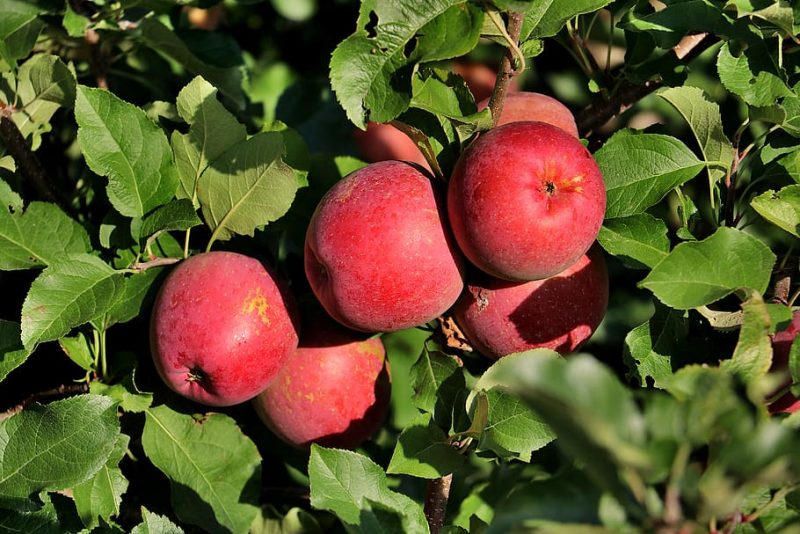There are three considerations to consider if you’re interested in learning how to start an apple orchard business. Much like planning on how to have a profitable backyard nursery, managing an apple orchard requires forethought. Some universities like Pennsylvania State University even offers a course to learn more about this endeavor.
Besides knowing how to start and what to consider for an apple orchard business, managing an orchard itself would require attention and effort throughout the year. The activities that you have to do will span from February to December, so expect that an apple orchard is not something you could leave on its own. Below are the three considerations to prepare for in starting an apple orchard business, and it’s advisable to do your research in the management itself.

How To Start An Apple Orchard Business Successfully
Get experience
The first factor to consider when starting an apple orchard business is by getting experience. You want to know the ins and outs of orchard management because experience plays a significant role in handling one later on. Therefore, you should work at other orchards first, preferably one by a successful orchardist.
A year or more of experience would help you in the long run and expose you to the current production practices. You can also check out different associations and organizations in your area or attend events and meetings about apple orchards. You can know more from experienced growers and meet other experts to build connections later on.
The key to a successful orchard business is exposure to the practices that you can guarantee to work and make a profit. More so, you have to experience problems to know how to handle them when they occur in your orchard. You can also check out the courses from different universities hand in hand with actual practice.
Plan
The second factor to consider is the preparation and planning itself. Remember that it doesn’t matter if you intend to manage a small orchard or not; you need to create a system to guarantee success. For example, make a plan or structure the management of the orchard itself.
Would you need additional help around the orchard, especially when it’s the season of harvesting? A typical size for an apple orchard business is around 10 acres, and this operation is doable for one person. However, going for something bigger will require help and machinery to sustain a productive commercial use system.
There is a lot to learn when one wants to enter an apple orchard business. This is where experience has a massive impact on your management skills later on. Remember that you’re aiming to make a profit, which requires careful planning from planting to marketing. You want to handle everything from growing the trees, facing problems, harvesting, handling, and training to keep up with the trends and market.
Other considerations
Costs
Much like with any business, you have to anticipate the start-up costs and plan your budget for an apple orchard. Right off the bat, you will need to allocate a significant sum of money to start this business. Think about how this endeavor requires a large investment until it can return the expenses.
You want to be secured with your finances and that you have the capital to start and operate. Depending on the trees that you’re growing, productivity after planting can take seven years or more. This is why planning will determine your ability to manage an apple orchard and how you can handle the financial obligations that come with it.
Location
Now that you have the experience, plan, and budget, the next factor to check is if you have the apple farming location. In general, the best region for an apple orchard is dry and temperate because these conditions help grow high-quality sweet apples with long shelf life. If your region allows a short growing season, you’ll have ripening problems or have to adjust ripening apples in the summer.
You will also need control over the climate, especially during the growing season, to ensure growth and fruiting without drawbacks. You don’t want any excess in heat or coldness, nor wetness and dryness. Otherwise, you risk having low fruit quality and diseases.
Lastly, how good is your soil for apple farming? A fertile and loamy soil would be best for an apple orchard to promote productivity and lower the risk of diseases. More so, you want the soil to have good drainage and aeration to prevent crown rot or low tree development. Slightly acidic or neutral soil will also ensure good fruit production.
Apple varieties
The final consideration when starting an apple orchard business is knowing what apple varieties will be best. Honeycrisp, Cortland, and Golden Delicious are some of the popular varieties to grow in the US. You can also consider hybrids of Ambri and Golden Delicious or Red delicious and Early Shanburry, to name a few.
Conclusion
Nowadays, it’s enticing to venture into crop production for profit. Do you want to know how to start an apple orchard business? If so, you have to gain experience and plan everything beforehand.
Once you’re confident with your skill and framework for orchard management, you must check your budget, location, and the apple varieties you can grow. These are the simplified factors to learn how to start an apple orchard business but note many facets in this endeavor. You can enroll in courses, in addition to having on-hand experiences.
